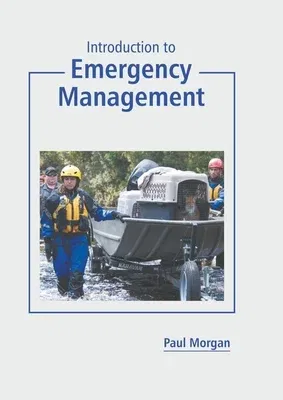Emergency refers to a state that disrupts the natural procedures. It
requires immediate measures to be taken in order to prevent it from
converting into a disaster. Emergency management is concerned with the
management and organization of resources and responsibilities during an
emergency. It is primarily focused on the humanitarian aspects of
handling emergencies such as preparedness, mitigation, response and
recovery. Preparedness refers to preparing procedures and equipment
which can be used in the event of a disaster. Proactive measures which
aid in eliminating and reducing the risks as well as impacts of
disasters fall under the category of disaster mitigation. The response
phase of emergency management focuses on the fulfillment of the
humanitarian needs of the affected population. Once the immediate threat
to human life is subsided, the recovery phase is initiated. This book
studies, analyses and uphold the pillars of emergency management and its
utmost significance in modern times. It is a compilation of chapters
that discuss the most vital concepts in this field. This textbook is an
essential guide for both academicians and those who wish to pursue this
discipline further.

